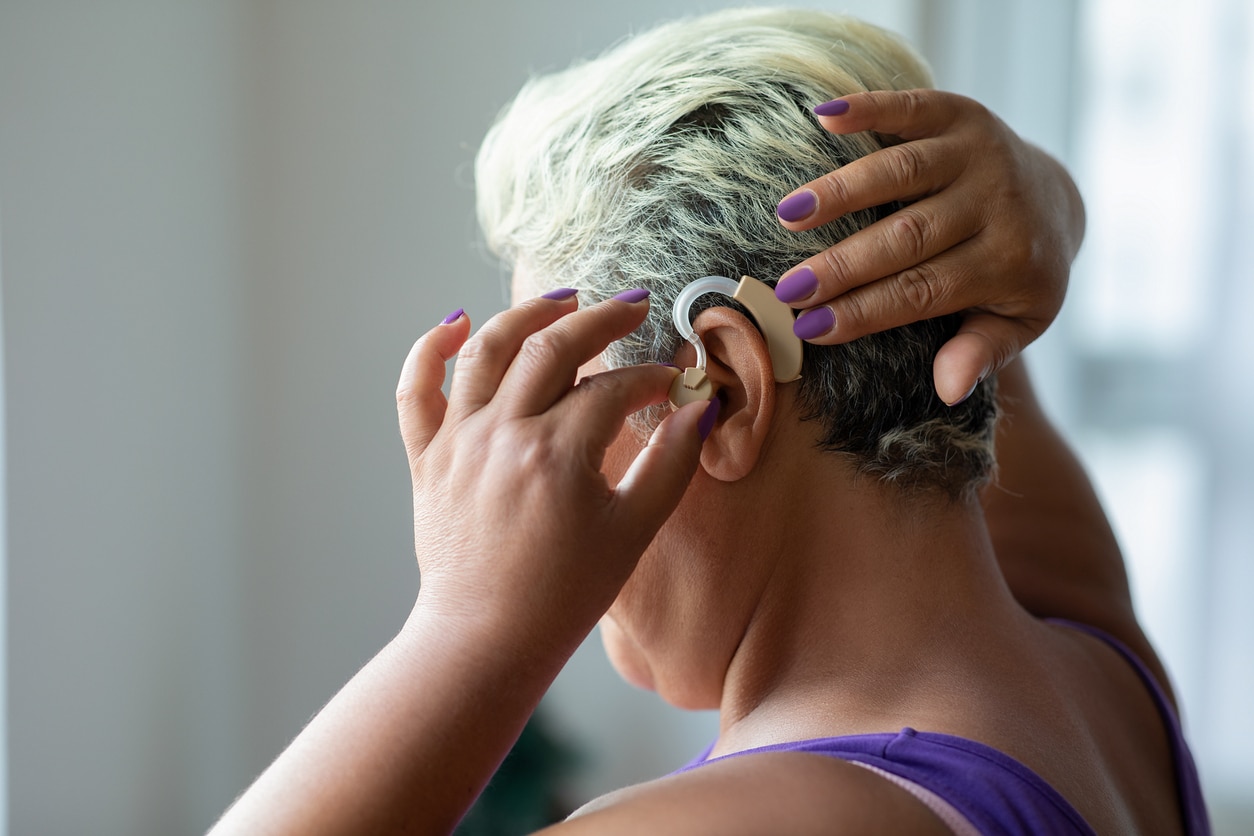Hearing aids are powered by either disposable or rechargeable batteries.
Disposable battery hearing aids use small, replaceable batteries that need to be changed as often as once every three days. Rechargeable hearing aids have built-in batteries that are charged nightly.
Choosing which one is right for you depends on your needs.
What is a Rechargeable Hearing Aid?

Rather than replacing batteries, rechargeable hearing aids are docked in their charger nightly. Pros of hearing aids include:
- Long life. Rechargeable batteries in hearing aids can last from one to five years, as opposed to disposable hearing aid batteries, which last only three to 22 days.
- Long charge life. While nightly charging is recommended, rechargeable hearing aids can hold their charge for up to 30 hours. You can trust that your battery will hold power as you go throughout your day, whether working or catching a movie at Salem Cinema.
- Ease of use. Changing the tiny batteries in hearing aids can be challenging for those with dexterity issues. Rechargeable batteries have a simple docking procedure that is easier for these individuals.
- Better for the environment. Changing disposable hearing aid batteries frequently generates a lot of waste. Opting for rechargeable batteries will help reduce your carbon footprint if used for their full lifespan.
When making your decision, a couple of cons to consider include:
- Dependency on the charger. While nightly charging is convenient, chargers are more time-consuming and expensive to replace. In the event the charger is broken or lost, you will be without your charger and hearing aids until it can be repaired or replaced.
- There are fewer styles to choose from. Though rechargeable hearing aids are quickly growing in popularity, choosing a rechargeable hearing aid can limit style options, with most of them coming in behind-the-ear styles. Discussing rechargeable hearing aids with your medical provider will help give you a better sense of your style options.
- Replacing batteries can be more difficult. Though you will not need to replace your hearing aid batteries as frequently, when the rechargeable battery needs to be replaced, it will need to be done by a professional.
What’s the Bottom Line?
While 52% of hearing aid users surveyed in 2022 had a rechargeable hearing aid, choosing a hearing aid is a personal decision. Consider which of these options is right for you, and if you have any questions contact your hearing specialist at Willamette ENT & Facial Plastic Surgery today.
“I came to be under Dr. Donovan's care during a medical emergency at the hospital. The care I received that day and in every interaction after, at Willamette ENT has been prompt, professional and very thorough. I feel very well cared for.”